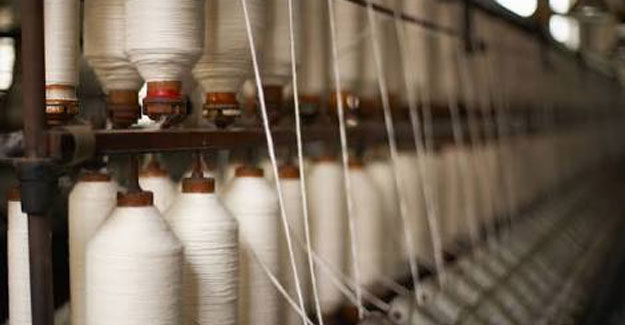
Cotton Yarn Spinners To Incur Margin Squeeze In Current Fiscal
Operating margin of domestic cotton yarn spinners is expected to shrink 200-400 basis points (bps) during the fiscal 2020 on account of narrowing of spread between cotton and yarn prices as compared to that in the last fiscal, as per CRISIL Ratings. Higher domestic cotton prices compared with global prices during April-October 2019, a sharp fall in exports mainly to China & Pakistan, and the resultant domestic oversupply would lead to the squeeze. The decline would be more than what was estimated by CRISIL in May 2 2019, with small players bearing the brunt. An analysis of 79 cotton spinners rated by CRISIL suggests that midand small-sized spinners (having spindles less than 20,000) are likely to be impacted the most, as shrinking revenue and lower margin will impact cash generation. Also, their balance sheets are not as strong as some of the large players, which will impact credit metrics. The spread fell from Rs 86 per kg in April to below Rs 75 by October, resulting in a sharp fall in operating profitability for the spinners. But with the arrival of new crop, the spread has started recovering from November onwards. However, sustainability of spread above Rs 80-85 per kg for the rest of fiscal is critical for spinners to negate the fall in margin till October 2019. "While domestic demand (70% of domestic production) is expected to grow 3-4% this fiscal, supply has been higher because of lower exports. The US-China trade war has impacted demand for yarn in China, while the Indian government has banned yarn exports to Pakistan. China and Pakistan (accounting for 35% and 5% of yarn exports, respectively, in fiscal 2019) have reduced imports from India by 50-60% this fiscal. As a result, exports in the first seven months of fiscal 2020 are lower by around 38%, leading to higher domestic inventories and pressure on spreads," says Gautam Shahi, Director, CRISIL Ratings, The dynamics of the spread between global and domestic prices of cotton also affects profitability. International cotton prices declined around 15% between April and October 2019, following a bumper crop in Brazil and the US, and destocking by global consumers, mainly China. On the other hand, domestic prices fell only 10% during this period because of an increase in minimum support price (MSP), which rendered India's cotton yarn exports uncompetitive. Cotton output is expected to improve with late recovery in monsoon and increase in sowing area to 127.7 lakh hectare (6 per cent higher on-year and 8 per cent more than the five-year average). That would put pressure on domestic cotton prices, which could slip below the MSP sans policy intervention. On the other hand, international cotton prices are expected to remain range-bound until tariff issues between the US & China get resolved, says the report. "Considering recent reduction in domestic cotton prices to Rs 105-115 per kg and stable international cotton prices, profitability of spinners in second halfof current fiscal, should be higher than in the first half. However, this may not be sufficient to offset the steep negative impact on profitability seen in the first half," says Sushant Sarode, Associate Director, CRISIL Ratings. The impact on the margin will vary with size and product profile of the companies. Operating margins for large spinners (having a capacity of 50,000+ spindles) could be lower by around 200 bps in fiscal 2020, while the impact on midand small-sized spinners (less than 20,000 spindles) could be twice that. CRISIL's analysis of its sample set showed average debt to EBITDA (earnings before interest, tax, depreciation, and amortisation) ratio could, therefore, rise to 3.2-3.4 times this fiscal from around 2.7 times in fiscal 2019. Large spinners will fare better owing to superior customer profiles, diverse product mix, and ability to manufacture a wide range of yarn counts. Stronger balance sheets resulting from healthy cash accrual in fiscal 2019, along with continuing moderate capex,would also place large spinners in a better position to face the challenging business scenario. On the other hand, CRISIL expects mid- and small-sized players with limited balance sheet strength to faceheadwinds, until demand firms up and the recent improvement in spreads sustains.
Textile Excellence
If you wish to Subscribe to Textile Excellence Print Edition, kindly fill in the below form and we shall get back to you with details.












